Anton Alikhanov on robotics: ‘We have allocated 1 billion for a discount for the purchase of robots, it will pay off in a year’
The head of the Ministry of Industry and Trade of Russia announced in Kazan a pilot program to subsidise the purchase of domestic robotics for industry
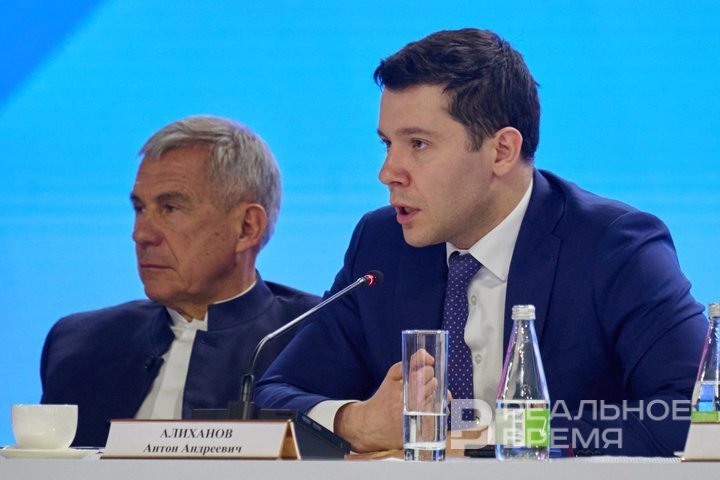
“Based on three years of experience, I can say that Chinese suppliers have poor quality, delayed delivery times, understaffing and poor warranty service," complained Andrey Fomichev, the director general of the S.P. Titov Naberezhnye Chelny Cardboard and Paper Mill, about difficulties in purchasing production automation equipment. Now Russian enterprises have no choice — everyone is going to China. The head of the Ministry of Industry and Trade of Russia, Anton Alikhanov, seemed to be waiting for a “pass” through his “gates”. He announced the upcoming launch of the new program to subsidise the purchase of domestic robotic systems. “We will not change demographic trends," he urged to be active. Read the details in the material of Realnoe Vremya.
Didn't fly?
The results of the work of the industrial complex of Tatarstan in 2024 were summed up with the participation of a large management team of the Ministry of Industry and Trade of Russia and the heads of state-owned defence companies on 27 February. Together with the young minister Anton Alikhanov, Vadim Badekha, the head of the United Aircraft Corporation (UAC), Alexander Pan, the head of the Radioelectronic Technologies Concern (CRET), and others flew to Kazan.
None of them spoke publicly, but judging by the composition, it can be assumed that the situation at the Kazan Aviation Plant, a branch of Tupolev PJSC, could have been the reason for the gathering of high-ranking officials. Back in January of this year, Oleg Korobchenko, the deputy prime minister and minister of industry and trade of Tatarstan, announced the impossibility of producing four Tu-214 aircraft by 2025. Instead, only two aicraft will be assembled, and they are currently undergoing flight tests.
It should be noted that this is the second significant adjustment of the Tu-214 assembly plan. Prior to that, the forecast was lowered even more — from 10 to four aircraft by 2025. Now, it seems, we have reached the real figure — two Tu-214 aircraft in 2025.
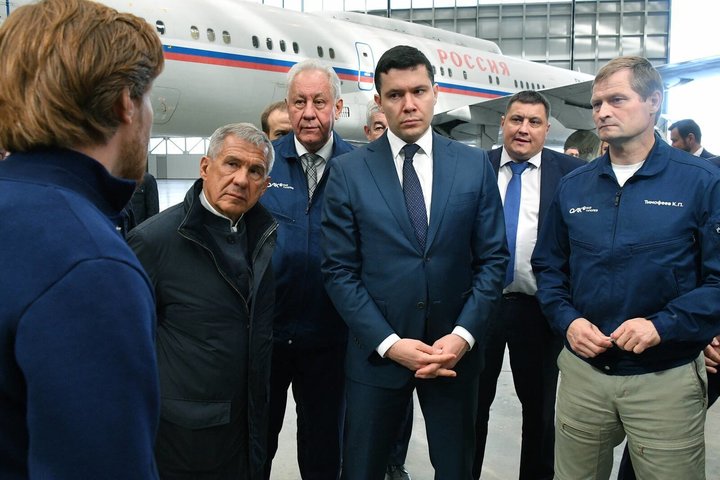
Before the meeting, many representatives of the Kazan Aviation Plant could be seen in the lobby. But none of them wanted to talk about the reasons for the next adjustment of the Tu-214 program. At the board itself, Deputy Prime Minister Oleg Korobchenko reported on the results of the work of aviation enterprises in one line. Firstly, he recalled that “as part of import substitution, a set of measures is being implemented to expand the production of Tu-214 aircraft," and the plant itself is switching “to digital manufacturing technology and the creation of a modern after-sales service system”.
Secondly, he reported on the improvement of the “fully import-substituted Ansat helicopter” at the Kazan Helicopters Plant, as well as the decision to begin development of the Mi-34 light helicopter. Later it turned out that the republic's leadership discussed the thorny issues with the leadership of the UAC and CRET at a separate meeting.
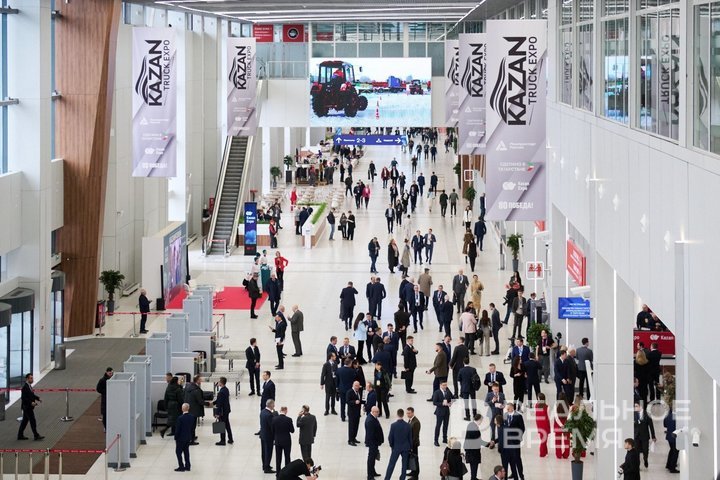
“We have conveyed the issues that concern us. I am sure that no one will solve them without us," said Rustam Minnikhanov, the rais of Tatarstan, later.
Protecting the domestic manufacturer
However, the state of affairs in the aviation complex did not spoil the overall results. According to Oleg Korobchenko, Deputy Prime Minister of the Republic of Tatarstan, the sanctions pressure did not prevent the country from developing at a “good pace”. The total volume of shipped products amounted to 5.6 trillion rubles, and industry still accounts for about half of the republic's GRP. The industrial production index increased by 5%.
For the first time, mechanical engineering turned out to be the absolute leader in revenue — this includes shipbuilding, helicopter construction, as well as the production of machinery, equipment, computers and optical products. It accounted for over a quarter of the shipped products. Most likely, the breakthrough was achieved due to the state defenсe order. Slightly less products were shipped in the petrochemical industry.
“Due to the quotas introduced, the volume of oil production in 2024 decreased slightly," Korobchenko explained.
Two important events are expected in the petrochemical industry this year: the launch of the EP-600 olefin complex, which will double ethylene production, and the launch of hexene production with a capacity of up to 50,000 tonnes a year.
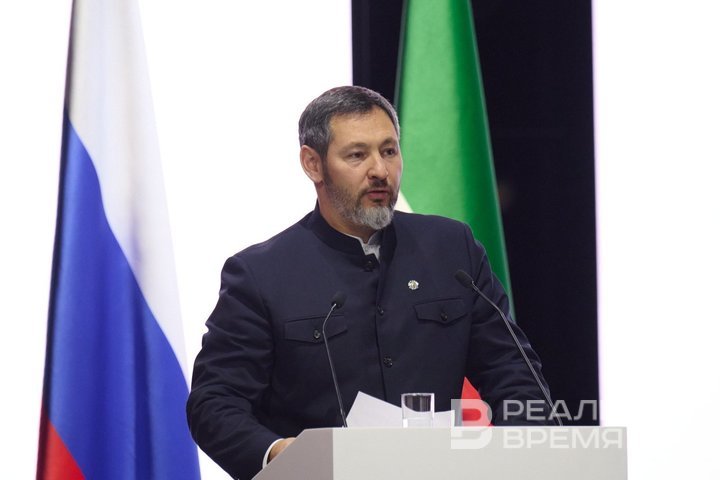
Speaking about the results in the automotive industry, Oleg Korobchenko appealed to the head of the Ministry of Industry and Trade of the Russian Federation with a proposal to introduce measures to protect the interests of manufacturers of domestic trucks: “We believe that all government contracts, large-scale construction sites and mining should involve domestic machinery.”
A similar proposal concerned manufacturers of charging infrastructure. “Dear Anton Andreevich, this year we expect the release of new rules for state support for the development of electric charging infrastructure. This is very important for Tatarstan, as we have manufacturers of modern charging stations," added the head of the Ministry of Industry and Trade of Tatarstan. Later, Airat Safin, CEO of Kazanorgsintez PJSC, made a request to protect the domestic polymer market from counterfeiting.
“Equipment can only be chosen in China”: What’s troubling business leaders
Andrey Fomichev, the director general of the Naberezhnye Chelny Cardboard and Paper Mill named after S.P. Titov, is concerned about a global problem — access to new technologies. He is going to build a second factory in Naberezhnye Chelny for the production of paper and pulp base for toilet paper rolls. Investments amount to about 3 billion, with a preliminary launch date of 2027-2028. “It will be equal in scale to the existing plant, with an area of about 20,000 square metres," he said.
But it is possible to choose the equipment only in China.
“Unfortunately, our industry has not had a domestic manufacturer since the collapse of the Soviet Union. So far, we have used technologies from European countries, Japan, and South Korea. Today we are working only with Chinese technologies," said Andrey Fomichev.
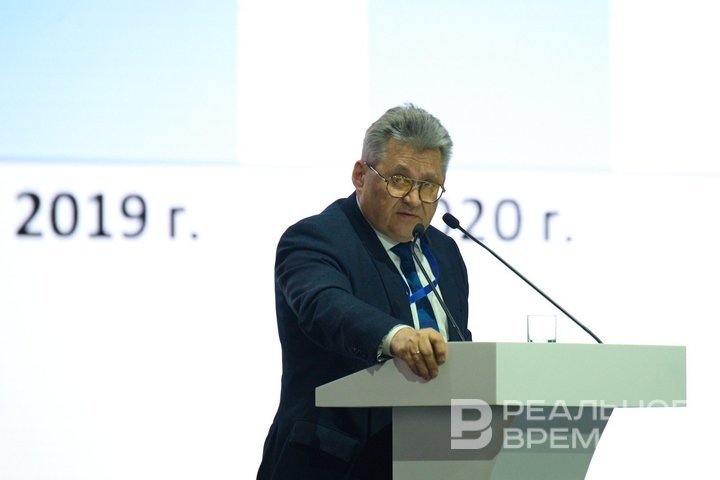
According to him, China's technology level lags behind that of Europe.
“Based on the experience of three years, I can say: these are poor quality, delayed delivery times, understaffing, payment problems and poor warranty service," he never tired of listing the shortcomings. “I think everyone who has switched to Chinese technology faces this.
“I've already told Andrey: You have great guys here who produce Eidos robots," Anton Alikhanov joined in the dialogue.
The head of the Ministry of Industry and Trade of Russia announced in Kazan a pilot program to subsidise the purchase of domestic robotics for industry. “One billion rubles has been allocated for the so-called discounts on the purchase of robots. With this in mind, the discount can reach 50% of the initial price," he revealed the upcoming subsidy mechanism.
In other words, the company can receive a certain discount certificate. On the other hand, the Ministry of Industry and Trade of the Russian Federation is currently negotiating with domestic suppliers on volumes. “We are asking how many robots they are willing to sell," Alikhanov added, making it clear that there are no final figures.
But in March, the Ministry of Industry and Trade of Russia is going to hold a selection. “We will not change demographic trends," the minister of industry of Russia urged to be active. And he cited the results of an authoritative ranking of countries in terms of automation.
“The top three world leaders include South Korea, where there are 1,012 robots per 10,000 people, Singapore (770 robots per 10,000 people) and China (470 per 10,000). Russia lags far behind them: 12 robots per 10,000 people," Alikhanov noted. “We have a huge road to becoming one of the top countries in terms of robotics. We are just launching this tool, but if it is in demand, we will increase the limits... I want to encourage robot manufacturers and consumers to participate. During the first year, the robot pays off and is given to the company for free. We need to work with human resources, but we won't go ahead without automation and technical solutions..
He praised Tatarstan for its high results. “You manage to maintain a faster pace in processing — the republic is in the top 4 in terms of product shipments, and is among the leaders in the industrial efficiency rating. Tatarstan is one of the participants in many programs, of which more than 280 billion rubles have been allocated to enterprises in the republic, hundreds of projects have been supported through the Industry Development Fund, totalling 53 billion rubles, and the regional fund provides loans. The industrial infrastructure is developing rapidly — Tatarstan is the leader here. The author of federal initiatives, more than 30 technoparks and clusters, and here Tatarstan is on a par with Moscow and the Moscow region. The industrial bias and the diversified structure of the economy are important.